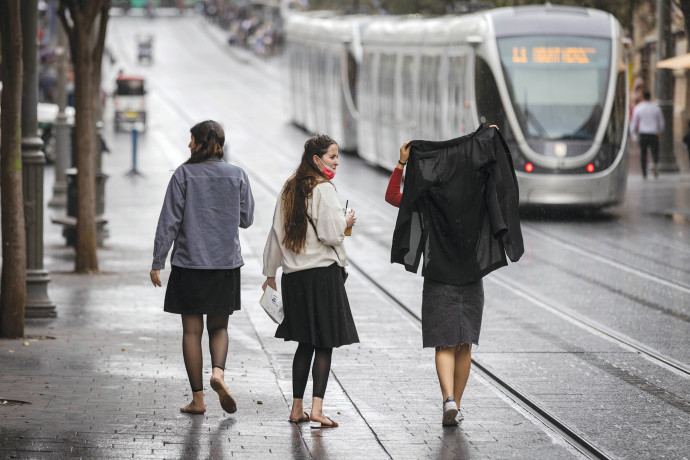The economic rehabilitation of women who were victims of domestic violence prevents their return to the violent source and encourages their independence, according to a recent survey.
The "New Page" program, which is operated by a private organization, began operating in 2020 during the social crisis caused by COVID-19 lockdowns, and it accompanies women and their children from the time they leave the shelter for victims of domestic violence for about a year and a half.
The program allows them to rebuild their lives away from the perpetrator of violence while making sure they make use of their rights, connecting the women to community support sources and encouraging personal and financial empowerment.
In addition to the support and accompaniment of a social worker on behalf of the organization, the program also provides grants of thousands of shekels for various needs, from going to school to purchasing electrical appliances and furniture.
"After leaving the shelter, I found myself fighting against various government bodies while taking care of three small children. Thanks to my social worker from the organization, I began to see the light," Ayelet, 32, a participant in the program, said.

"Upon joining the 'New Page' program, I received critical, basic electrical products that saved me at that time and I was accompanied to meetings at the bank and the welfare office. All this while, the rights I deserve were explained to me. I went through a very long process of change and learning in the face of the difficulties I faced. The organization and the program accompanied me every day and help me lift my head up."
"Upon joining the 'New Leaf' program, I received critical, basic electrical products that saved me at that time, I was accompanied to meetings at the bank and also to meetings at the welfare office. All this while being explained of the rights I deserve. I went through a very long process of change and learning in the face of the difficulties I faced. The organization and the program accompanied me every day and help me lift my head up."
Ayelet
Data collected shows a complex picture
Preliminary data from a survey of the graduates of "A New Page for Asylum Survivors," that was carried out this month among those who completed the program a year or more ago, presents a complex picture. 97% of the women did not return to the cause of violence and only 6.5% seriously considered returning to their previous lives.
In addition, 69.2% of the women are now employed and manage to maintain employment over time and 26.9% of the women are studying or have studied since the end of the program. 59% of the women reported that they have few or no social ties, and in addition, 32.1% reported that the food in their home is not varied enough and not in sufficient quantity.
The survey data also shows that 64.1% of the women are helped when needed by professionals in the community, demonstrating that community support remains an important factor in the rehabilitation process.
76.6% of the women report that they currently live in a safe environment and 78.2% report that the decisions they make achieve their goals. 79.2% feel that they are able to satisfy their children's needs.
"The program for asylum seekers began in September 2020, and about six months later, the epidemic broke out and with it the lockdowns and the social and economic difficulties that accompanied the women in the program," Adva Kara Vazzana, director of the "New Page" program, said.
"A year after they finished it, nearly 70% of them are working, but one-third suffer from food insecurity, which indicates the precarious economic situation of some of them compared to the needs in everyday reality. However, 77% report that they live in a protected and safe environment and we do put an emphasis in the program on the empowerment of women, being in a safe environment, and their ability to stand up for their desires, to believe in their choices and realize their dreams."
